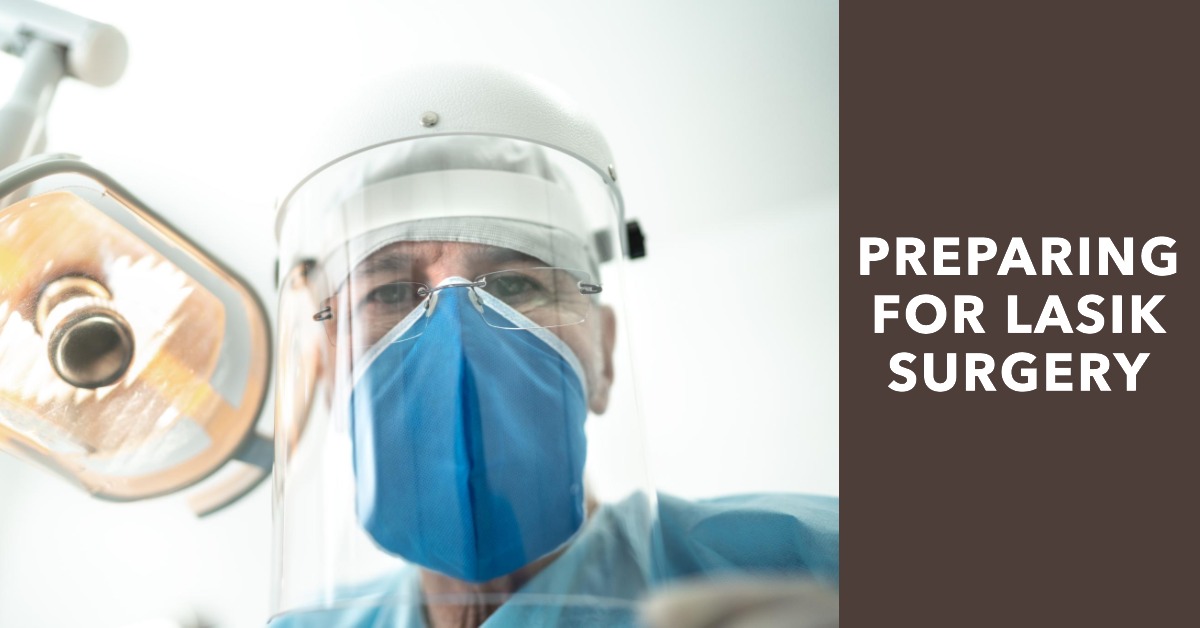Laser-assisted in Situ Keratomileusis (LASIK) surgery is a popular and effective solution for people looking to improve their vision. This surgery improves your vision and reduces dependency on glasses or contact lenses. Many patients find that they no longer need glasses or contact lenses. While LASIK is a relatively straightforward procedure, proper preparation is crucial for a successful outcome. Here are seven important steps you can take to ensure you are prepared for your surgery.
1. Schedule a Consultation
Before diving into LASIK, you should research the procedure. Gather information about the potential benefits and risks. An experienced ophthalmologist or LASIK surgeon will book a consultation to determine your eligibility for the surgery. During this consultation, you should discuss your medical history and current eye health. The doctor will conduct an eye exam to determine if the procedure is right for you. Additionally, take the opportunity to ask any questions or address concerns you may have about the procedure. This consultation is also a crucial time to clarify the expectations and outcomes of the surgery, ensuring that you have a thorough understanding of the process.
2. Follow Pre-Operative Instructions
Your surgeon will provide specific pre-operative instructions to optimize the outcome of the surgery. These instructions include avoiding contact lenses before the procedure since lenses can alter the shape of the cornea. Additionally, patients should abstain from using eye makeup, lotions, or perfumes on the day of surgery. Following these instructions creates an optimal surgical environment. By following these instructions, you reduce the risk of complications.
Furthermore, it’s important to disclose any medications or health conditions to your surgeon during the pre-operative consultation. This information helps the medical team tailor the procedure to your individual needs and ensures that you are in the best possible health for LASIK. Adequate hydration in the days leading up to the surgery is also advisable, as it can contribute to better overall eye health and recovery.
3. Arrange Transportation
LASIK is an outpatient procedure that requires the use of numbing eye drops. These drops impair your vision temporarily. Patients should arrange transportation to and from the surgery center on the day of the procedure. You won’t need to worry about navigating the roads while your eyes adjust. Most patients notice improved vision shortly after the surgery. Give your eyes time to adjust during the initial postoperative period.
Moreover, it’s essential to follow the post-operative care instructions provided by your surgeon, which may include using prescribed eye drops and avoiding activities that could strain your eyes. It’s common to experience some dryness or mild discomfort during the first few days after LASIK, but these symptoms typically subside as your eyes heal.
Additionally, attending follow-up appointments with your ophthalmologist is crucial to monitor the healing process and address any concerns you may have. If you experience persistent discomfort, changes in vision, or other unusual symptoms, don’t hesitate to contact your eye care provider promptly for guidance and reassurance.
4. Plan for Time Off from Work or School
Although LASIK has a quick recovery time, patients should schedule some time off work or other responsibilities. Your eyes need time to heal properly. Most individuals can return to work within a day or two. Immediately after the surgery, you should rest your eyes and avoid strenuous activities for a short period. Your surgeon may prescribe eye drops to aid in the healing process.
5. Create a Comfortable Recovery Space
A comfortable space at home is essential for a smooth LASIK eye surgery recovery. You will need a clean and quiet area where you can rest with minimal exposure to bright lights. During recovery, you should avoid activities that may strain your eyes, such as reading or staring at screens. You may feel tired and need to sleep more during this recovery period. Having a supportive environment ensures that your eyes heal properly.
Consider arranging essential items within arm’s reach, such as water, prescribed medications, and any comfort items that bring you relaxation. Dimming the lights and using blackout curtains can help create an environment conducive to rest and reduced eye strain. It’s also advisable to have a reliable support system in place, such as a family member or friend who can assist with daily tasks during the initial recovery days. By proactively preparing your home environment, you contribute to a more comfortable and stress-free recovery, allowing your eyes to heal optimally and ensuring a positive LASIK experience.
6. Understand Post-Operative Care
After your LASIK surgery, your ophthalmologist will provide detailed post-operative care instructions to help you navigate the recovery process. These instructions may include a schedule for using prescription eye drops. Your doctor will tell you what activities to avoid to prevent irritation and eye strain. You also will book follow-up appointments. Regular check-ups allow your surgeon to monitor your progress and address any concerns that may arise during the healing process.
7. Stay Informed About Potential Risks
While this surgery is generally a safe and effective procedure, every patient should be aware of potential risks. You also should have realistic expectations for your recovery. Temporary side effects include dry eyes, sensitivity to light, and mild discomfort. These side effects usually subside within a few days or weeks. You should discuss any concerns or questions with your surgeon to ensure you know what to expect during the recovery period. Staying informed and proactive about your eye health will contribute to a positive surgery outcome.
Conclusion
Preparing for LASIK surgery starts with researching the procedure and developing realistic expectations. Patients should adhere to pre-operative instructions and plan for post-operative recovery. You may need to ask for help from friends and family. Remember that communication with your LASIK surgeon is key throughout the process. With these seven tips, you can enhance the likelihood of a successful LASIK outcome and enjoy the benefits of improved vision.






